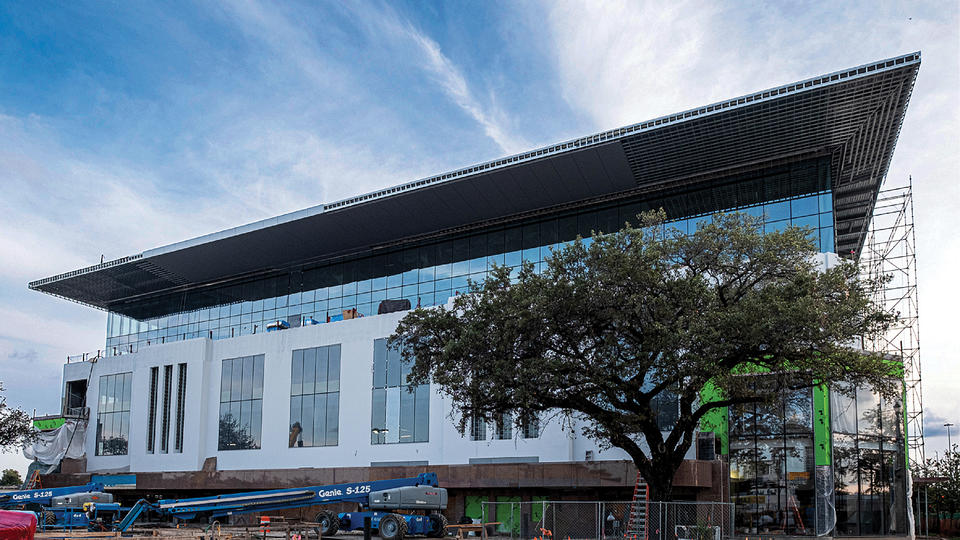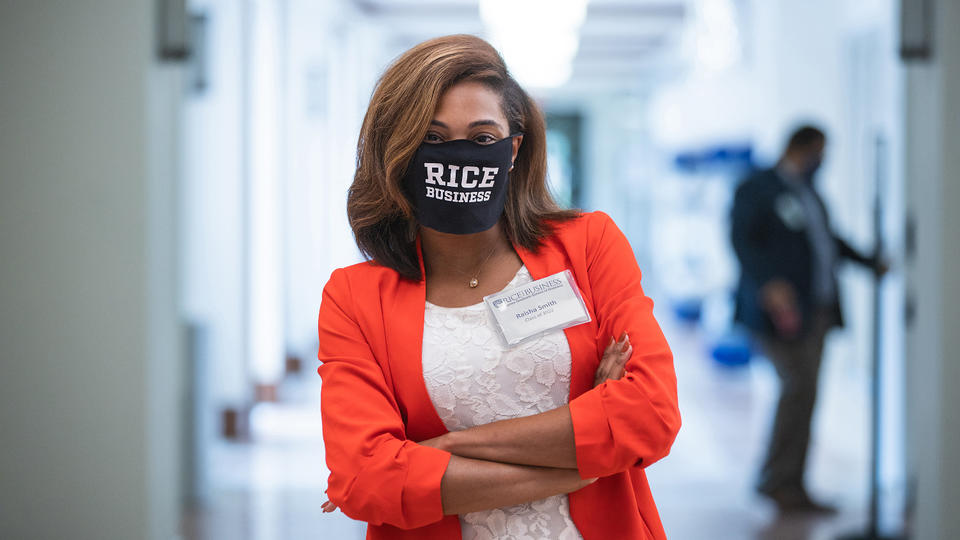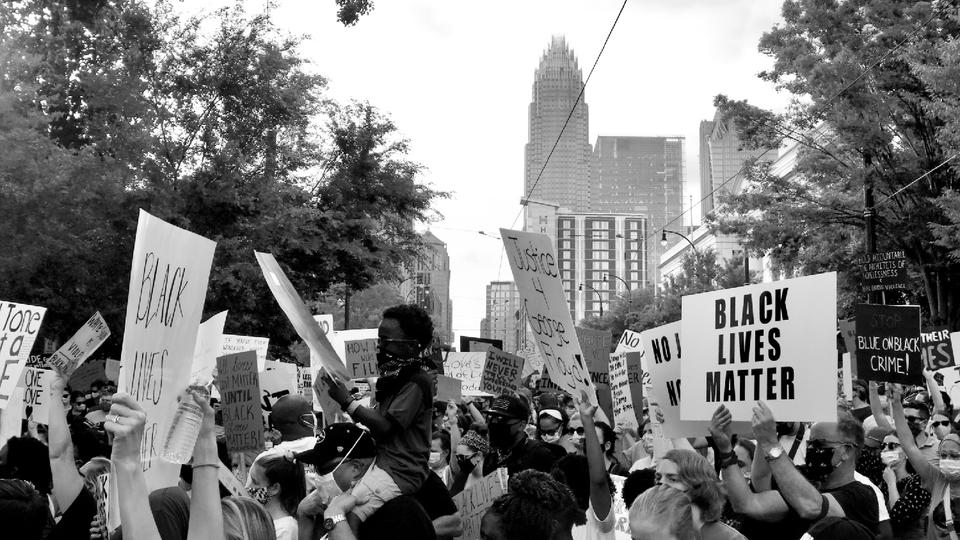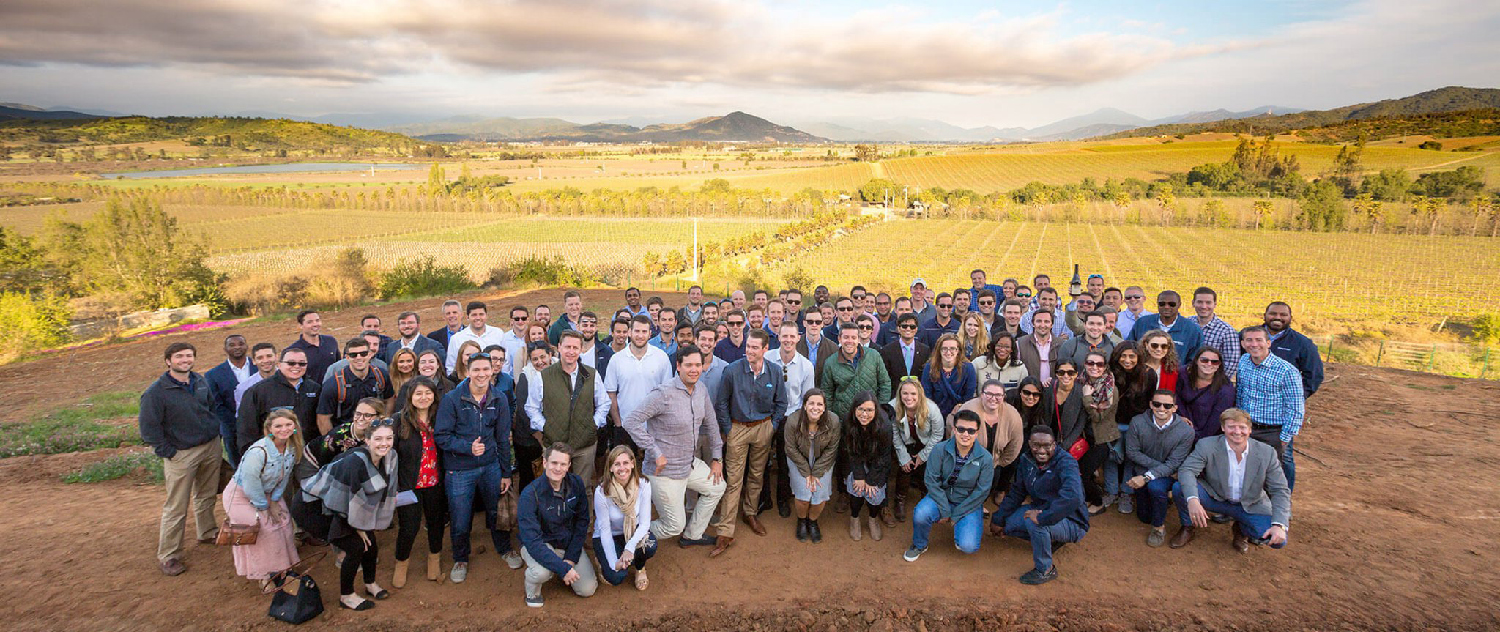
Think Globally; Act Remotely
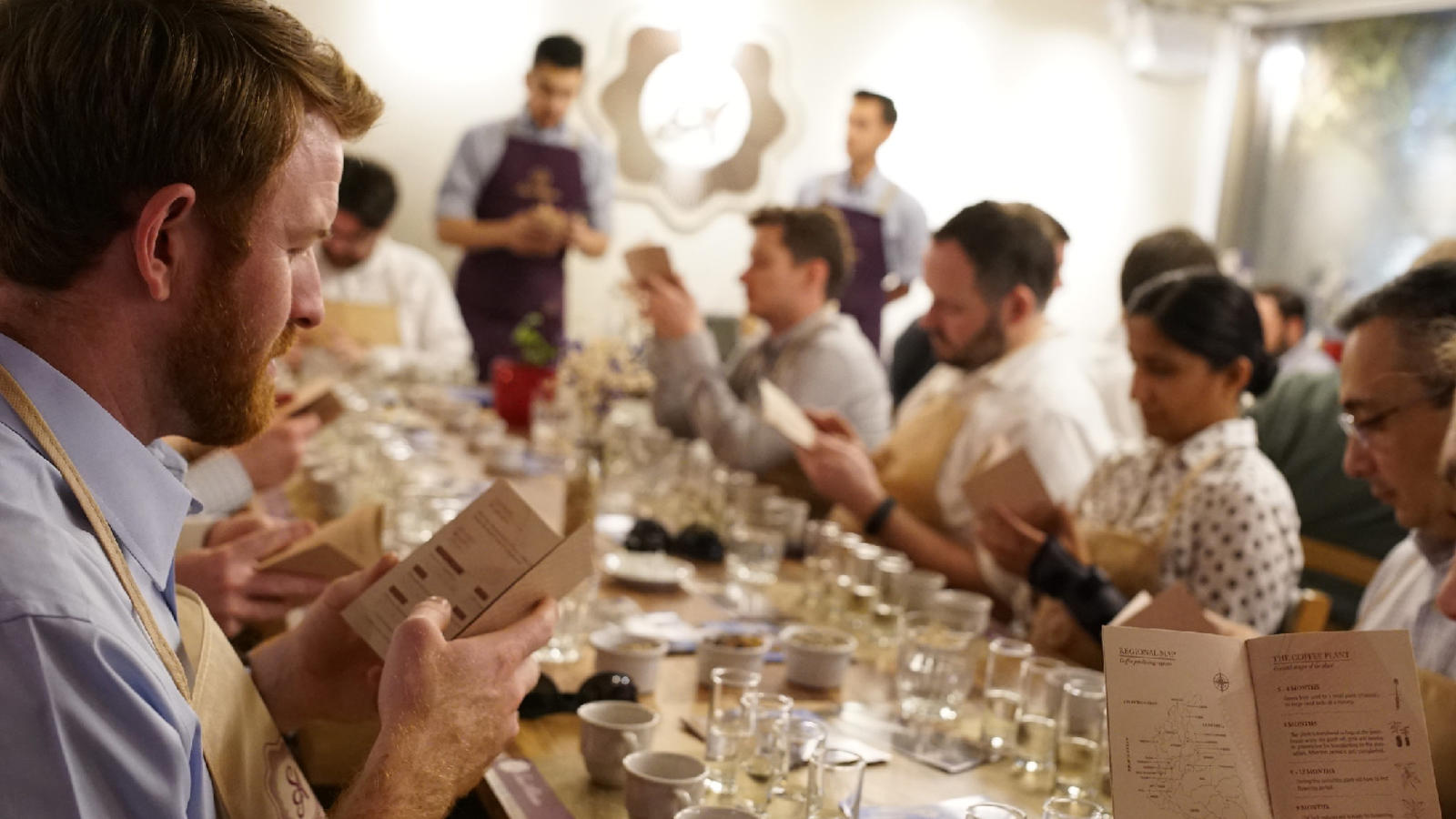
The Global Field Experience is a key part of the Rice Business curriculum. This year, students got a cross-cultural experience without ever leaving home.
In Buenos Aires, a family business that builds furniture for office buildings wanted to branch out and add modern, residential wood and steel products to its mix. In normal times, the MBA students helping Cimo Saci craft a business plan as part of a Rice Business Global Field Experience might have popped into competing furniture stores to gather intel or interviewed shoppers strolling along Buenos Aires streets.
But this year, the course faced a significant challenge: COVID-19. What is typically an immersive cultural experience, helping companies abroad solve real-world business problems, was constrained by the fact that students couldn’t safely travel. Organizers of the global program quickly adapted, however. They moved the course online, maintaining the cross-cultural dialogue — but doing it from a safe distance.
Students working on the business plan adapted as well. They created a digital consumer survey and translated it into Spanish to gauge customer interest. They interviewed competitors by phone. Then, over Zoom, they presented their client with a detailed business plan, marketing strategy and starter portfolio designed to get buy-in from the family’s patriarch and help the company jumpstart its new endeavor.
“It was a crash course in how to assess a new market, and it was a huge learning experience,” says London Hayes ’21, one of the students who worked on the project. “From marketing to understanding customers’ preferences to pricing strategies, I tackled challenges I’d never faced before. We gave the client the proof that they needed for dad.”
To adapt to the current health crisis, Global Field Experience organizers and advisors, plus the dozens of participating students, were challenged this year to come up with creative ways to work — and together, they made it a rewarding experience for all involved, says Abbey Hartgrove, senior associate director of Rice Business Global, who organizes the trips.
“Over the years, we’ve been able to develop very high-quality relationships,” Hartgrove says. “Then, when something like this happens, it’s not hard to ask people to transition to online, and they say, ‘Absolutely.’ The relationships we’ve built over time were imperative to the quick transition, and the program was a success all the way around.”
Despite having to do it remotely, students honed their critical and creative thinking skills and analytical reasoning, while the companies they worked with — many of which don’t have an MBA on staff — benefited from their in-depth research, business plans and advice.
Brandon Horne 21’, who also worked with Cimo Saci, was excited to learn about business operations in another country after working for years in the U.S. in engineering. Solving a business problem in Argentina, which has one of the highest inflation rates in the world, presented students with an especially unique challenge.
“It was interesting to see how much more work is involved when you can’t make assumptions about things we take for granted every day,” such as stable prices, Horne says. “It was a fun drill to build out a model for the client, and based on their reaction, our work was valuable to them.”
And connecting with the client virtually had some unexpected benefits, Horne adds, especially when a team member’s child inevitably wandered into the room. “The client liked to see the kids and waved to them,” he says. “It added to the relationship.”
MBA Concepts in the Real World
Part of Rice Business’ core curriculum, the Global Field Experience was created in 2018 to give students valuable experience working on consulting projects hand-in-hand with companies in emerging markets, with a focus on Latin America.
For these courses, full-time, professional, and executive MBA students split up into small teams, and each is assigned a company with a specific business problem. Teams initially chat online with executives at the companies, which range from major global corporations to local startups. They also learn more about the country and business landscape through lectures from top executives and experts in the region. Then, they travel abroad to present their solutions in person. Plans for 2020 included sending more than 400 students across six cohorts to São Paulo, Rio de Janeiro, Bogota, Buenos Aires, Lima, Santiago and Panama City.
“Students get a great opportunity to try out some of the MBA concepts they’ve picked up, and in many cases, they get a newfound confidence,” says Bill Glick, a management and organizational behavior professor who was a co-advisor to students participating in the Argentina courses. “They gain an appreciation of how to do business in other contexts and see that their ideas are valuable to businesses.”
In past years, Rice Business students have helped companies make major breakthroughs. One company even changed its name after student research revealed that it wasn’t serving the brand well.
“Students leave behind tools that companies can really use,” Glick says. “The program has done a lot of good for clients.”
David Van Horn, an operations management professor and Glick’s fellow Argentina advisor, says that travel does amplify the experience. “But even without that, doing this type of high-quality work for an actual business over Zoom builds camaraderie. The businesses really enjoyed working with the students,” he says.
In normal times, students spend seven to 10 days in-country at the end of the semester, meeting with company executives and fine-tuning their business solution during the day, networking at night, and engaging in a service project to help the local community. During the trip, students also meet with local experts and business leaders.

But in early March, it became apparent that this wasn’t going to be a typical year. “Storm clouds were already on the horizon,” says Van Horn. During an in-person kick-off class at Rice for the 53 professional MBA students in the Argentina cohort, travel abroad was the elephant in the room, he says. “We said, ‘Let’s see how things go.’ ”
Virtual Problem Solving
Professional students, who were assigned to Argentina, broke off into teams of five and made a top-10 list of their preferred companies out of a list of 19. Most of the business problems focused on developing strategy and marketing solutions for companies including an organic winery, an oil and gas company, a gelato maker and a handful of software companies.
“Students learn about operations, finance, markets — all the different gears of a business,” Van Horn says.
With the help of the Austral Group, which connects universities with corporations and business leaders abroad, the Rice Business professors ultimately decided on the team-company pairs. Students then met executives from their business virtually, as they normally would have. Michelle Depenbrock, ’21, said she was excited to travel to Argentina, adding that the uncertainty about the travel piece was difficult. “We were all on the edge of our seats trying to make plans and to get a definitive answer,” she says.
Weeks later, it became clear that travel abroad would not be happening because of the pandemic. Students would spend the next several months solving their business problem virtually. Depenbrock ultimately found she enjoyed working online with global steel pipe manufacturer Tenaris, which needed help refining its customer satisfaction assessments. She and her team spoke with executives weekly over Zoom, and researched top customer satisfaction technology and methodology online.
Of course, it’s impossible to replace the in-person networking opportunities that students missed out on this year. Those add another dimension to student-client relationships, Van Horn says, including what likely would have been dinners with CEOs, possibly in their homes. Some experiences just can’t be replicated online, he adds.
For example, in a past year, a team working with a Chilean textile import-export company gained valuable insight into the industry by walking around a massive textile marketplace in Santiago. “Sometimes, flat out, you just need to be there,” Van Horn says.
And working digitally brought new challenges. Connecting only through email and over screens made it tricky to get a feel for the client and exactly what they wanted. “Sometimes what they put on paper is not exactly what they want,” Depenbrock says.
But that drove home a valuable lesson, emphasizing the need to ask probing questions and to clarify the client’s goals every step of the way, she says. Once team members clearly understood Tenaris’ goals, they consulted with faculty and were able to deliver exactly what the client wanted.
Depenbrock’s team was thrilled when a high-level global marketing executive joined their final Zoom presentation and Q&A. “We were very happy with our client,” she says, “and the client seemed to be really pleased with what we delivered.”
Agustin Martinez Mosquera, the senior manager at Tenaris who sponsored the project, says the company is considering incorporating some of the team’s recommended methodologies and new technologies. “It was a great experience, and students surpassed our expectations,” he says.
The Benefits of Going Digital
Other projects this year included helping a small Argentinian winery broaden its global strategy and increase its brand reach. Students dove into research on the Asian wine market, where a majority of sales go through restaurants instead of retail stores, and where home consumption is tied more to online sales. Conversations with Rice alumni who have expertise in this market were an invaluable asset, as were conversations with Rice professors across disciplines and schools, from Rice Business to the Baker Institute, says Glick.
Crucial to making the Global Field Experience work remotely were Zoom Pro accounts, which Rice gave to all students, allowing them to seamlessly connect with their companies, Hartgrove said. She and her team coordinated virtual roundtables with Latin American executives and facilitated students and executives regularly connecting over Zoom. “There were a lot of moving pieces,” she says. “We were trying to remain innovative and get ahead of the game.”
Some students and their clients set up virtual happy hours, while others found themselves going over facts and figures with a startup CEO lounging on his living room couch. Hartgrove says that sticking with a limited number of cities, working with hand-picked companies, and taking the time to nurture relationships with executives was key.
In past years during the course’s in-person segment, meeting with local businesspeople could get complicated. Sometimes the CEO was out of town during the students’ trip; sometimes an exec’s office wasn’t large enough to host the whole team. Moving the experience online at a time when much of the world was on stay-at-home orders made it possible for more experts to participate, Hartgrove says.
“You would never have thought this would provide more opportunities,” she says, “but students were exposed to so much more, and they were amazed with how highly engaged the companies and executives were.”
Deborah Lynn Blumberg is a Houston-based freelance writer specializing in health and wellness and business and finance.
